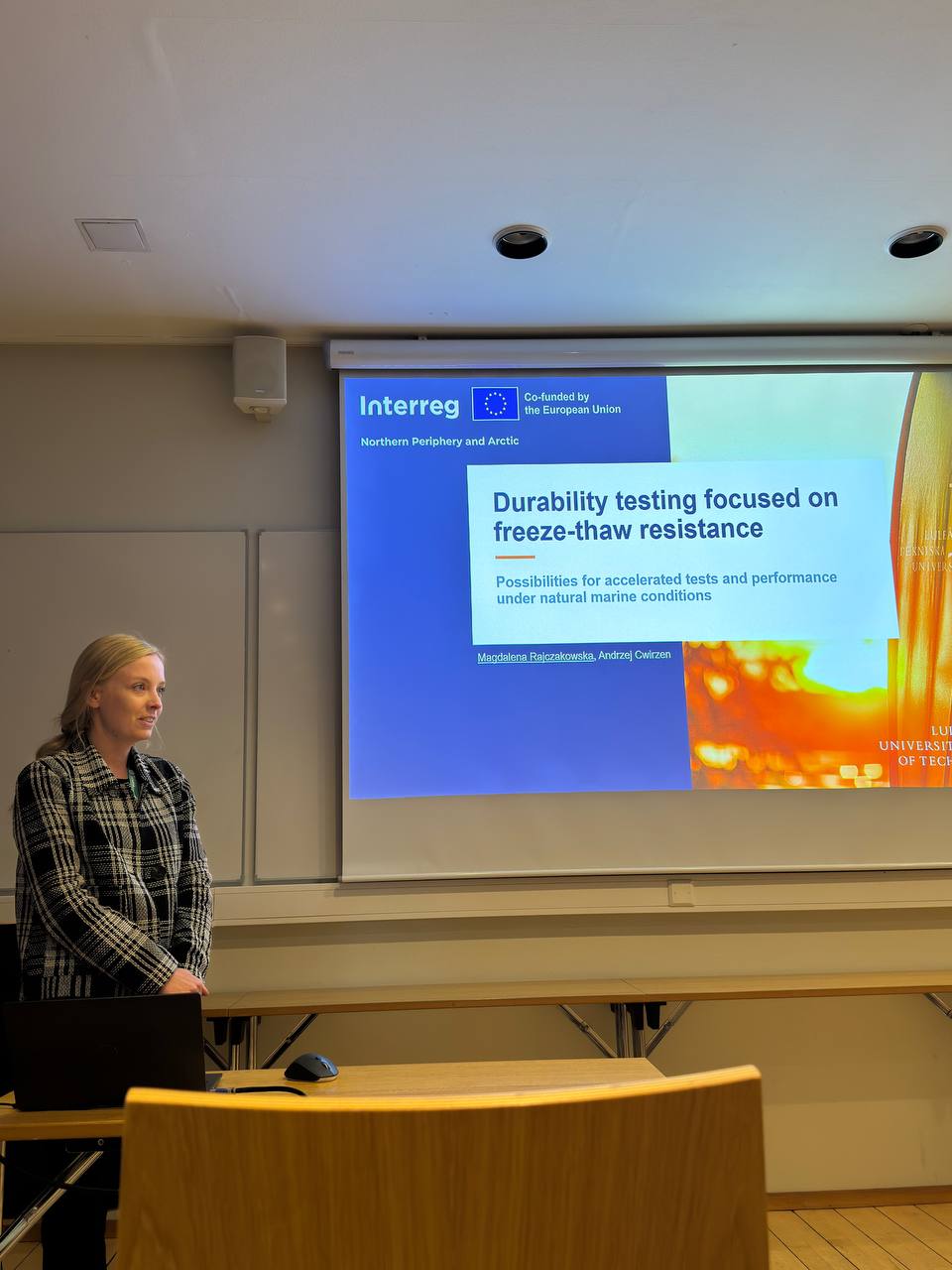Ar2CorD Project Participation at Nordic Concrete Symposium
The A2CorD project participated in the Nordic Concrete Symposium in Sandefjord Norway, held from 19–22 August, joining researchers and professionals from across the Nordics and Baltics.
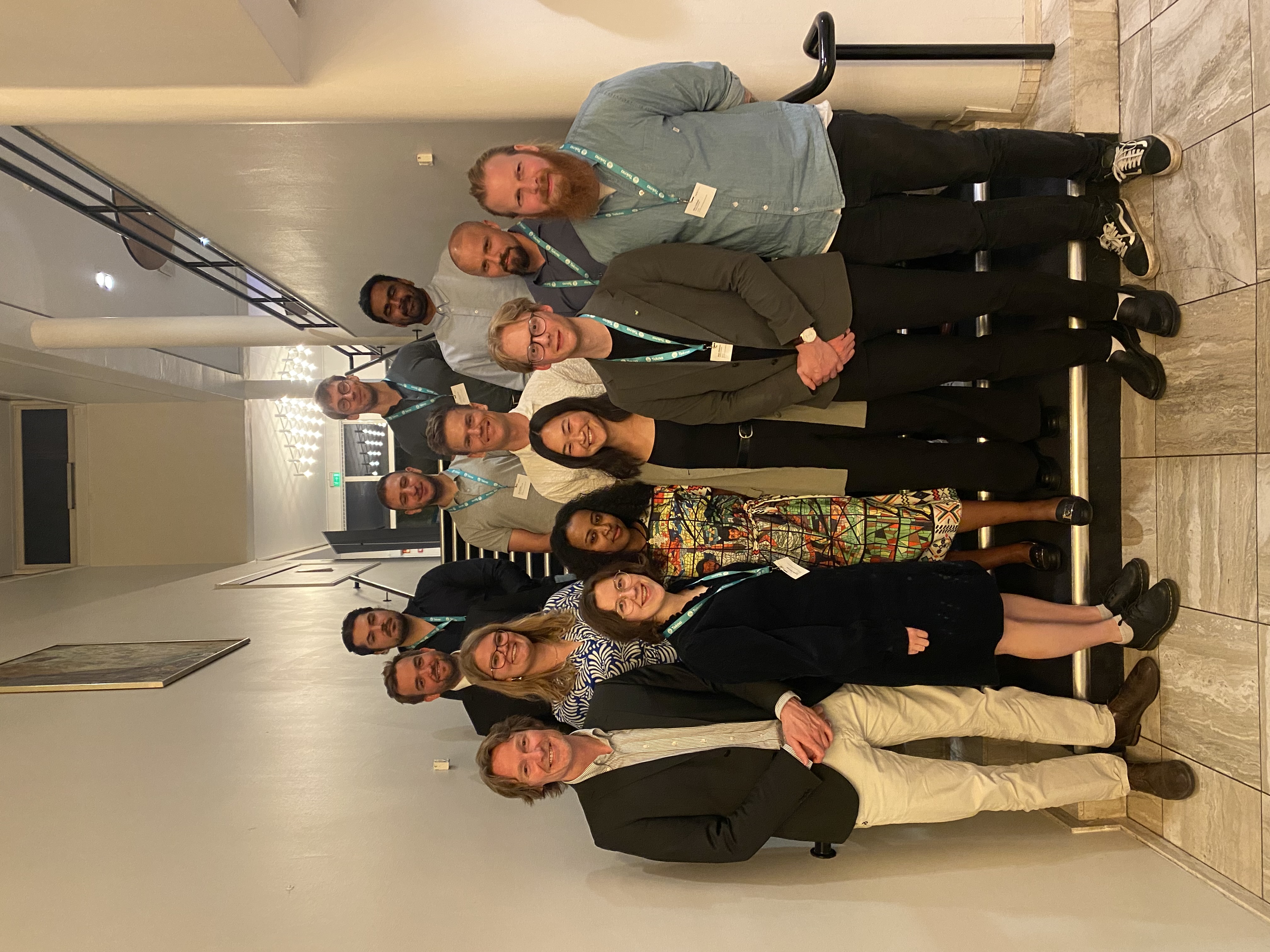
From 19–22 August 2025, the A2CorD project took part in the XXV Nordic Concrete Symposium in Sandefjord, Norway. The symposium brought together around 140 participants from across the Nordic and Baltic regions, creating a vibrant platform for exchanging knowledge, sharing research, and strengthening collaboration.
|
August 19th, the first day of the Nordic Concrete Symposium in Sandefjord started with an exciting technical excursion to the Heidelberg Materials cement factory in Brevik. Participants had the opportunity to see firsthand one of the world’s pioneering large-scale carbon capture and storage (CCS) projects in the cement industry. |
| On 20 August, the second day of the Nordic Concrete Symposium, Iveta Nováková took on the role of chair leader for the morning session on Durability. | 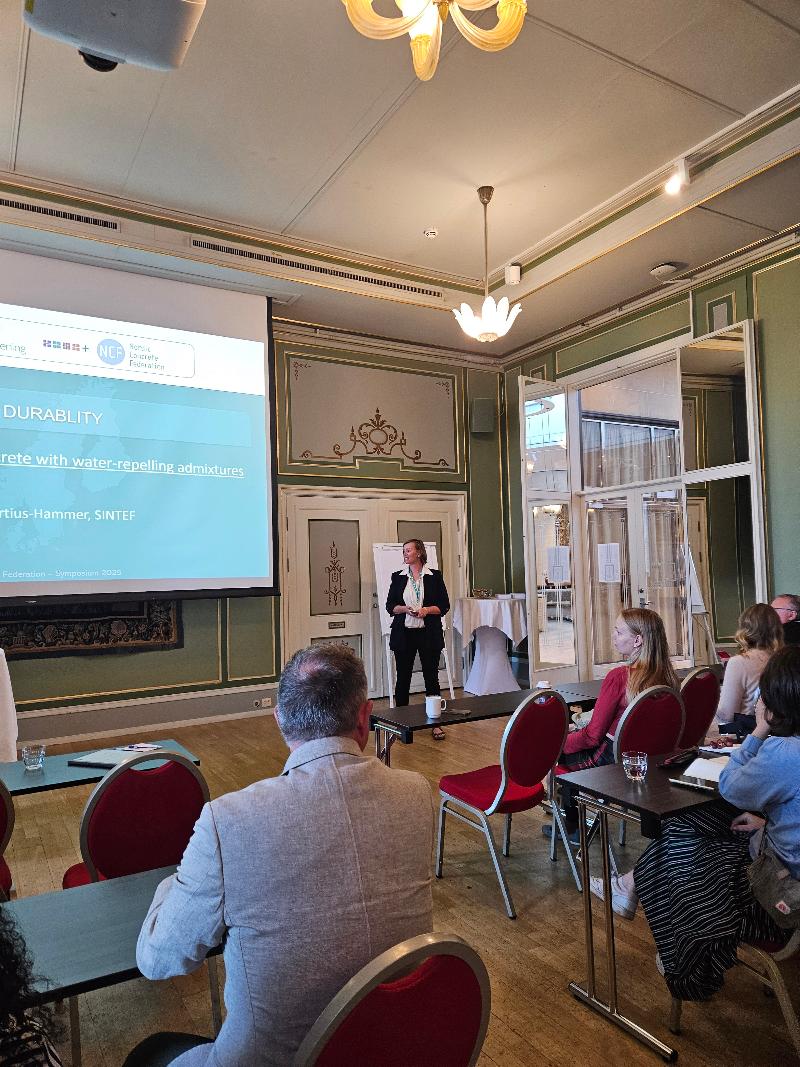 |
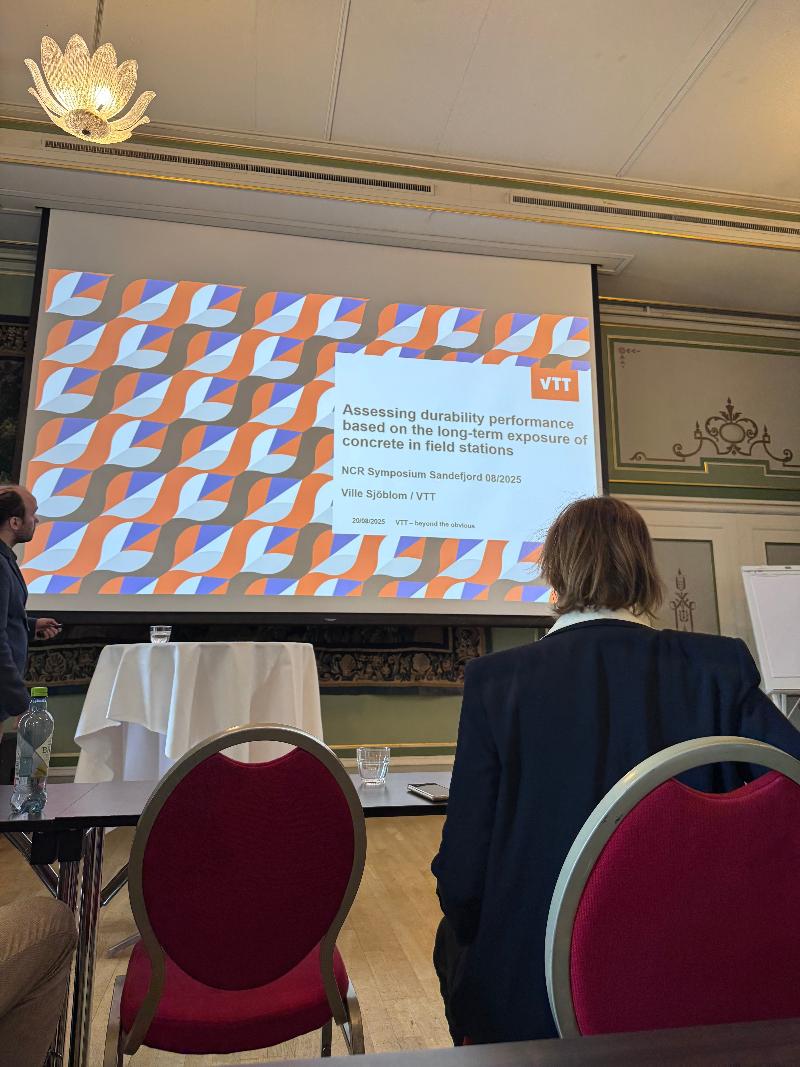 |
In the afternoon of 20 August, the A2CorD project had the opportunity to lead the Concrete Café on the Durability of Low-Carbon Concretes. The session opened with a speech by Iveta Nováková, followed by four short presentations from A2CorD members, each introducing their respective work packages. The event concluded with an open discussion based on questionnaires prepared around both research and industry perspectives, reflecting A2CorD’s strong partnership between academia and industry.
The first speaker, Adeolu Adediran from the University of Oulu, Finland, presented on the use of supplementary cementitious materials, highlighting both the input materials under investigation in the research phase and those already available on the market or industrially applied.
The second speaker, Iveta Nováková from The Arctic University of Norway, discussed the design and criteria for low-carbon concrete as developed in Norway, Sweden, Finland, and Iceland, with a particular focus on reducing environmental impact.
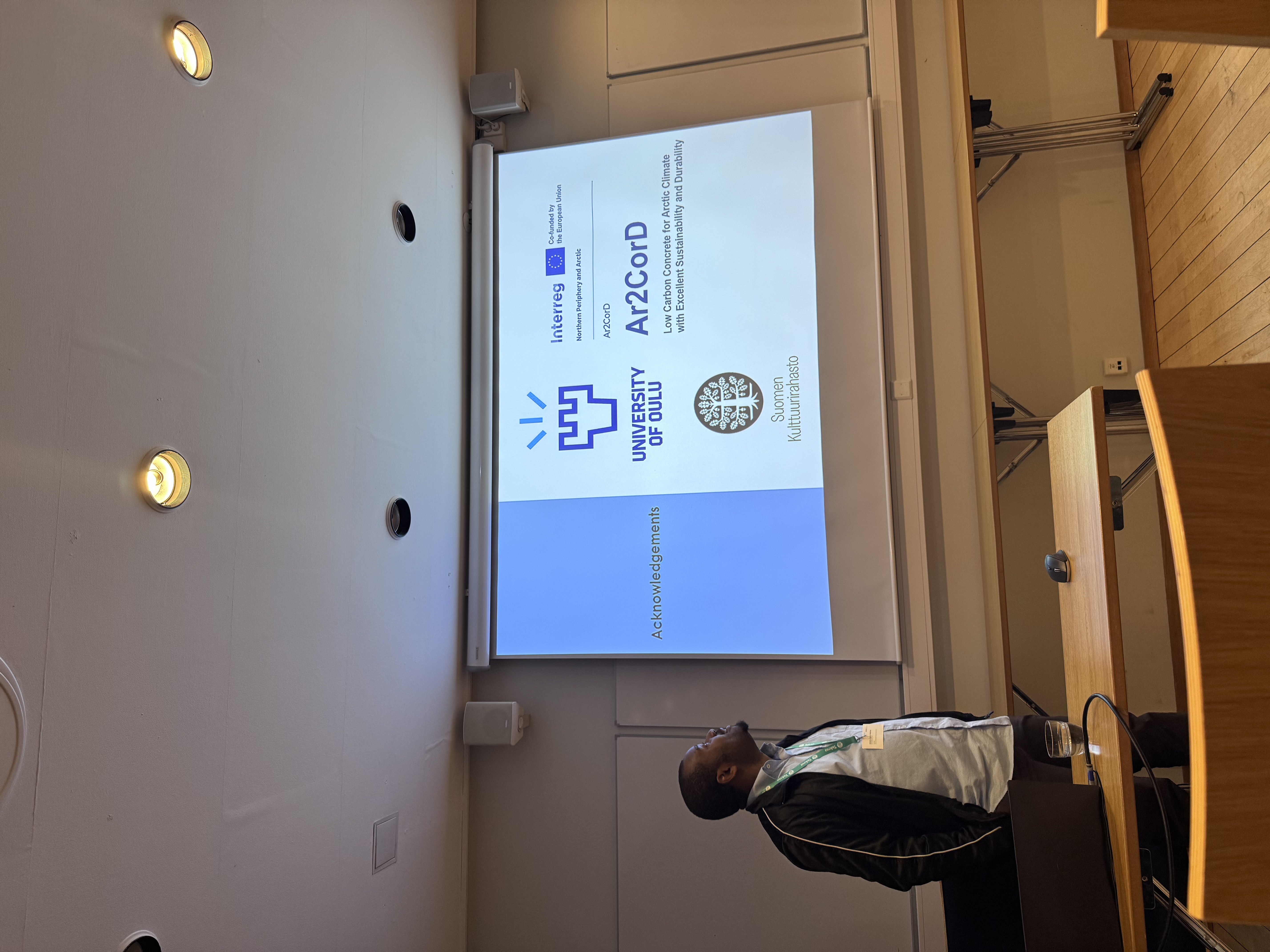 |
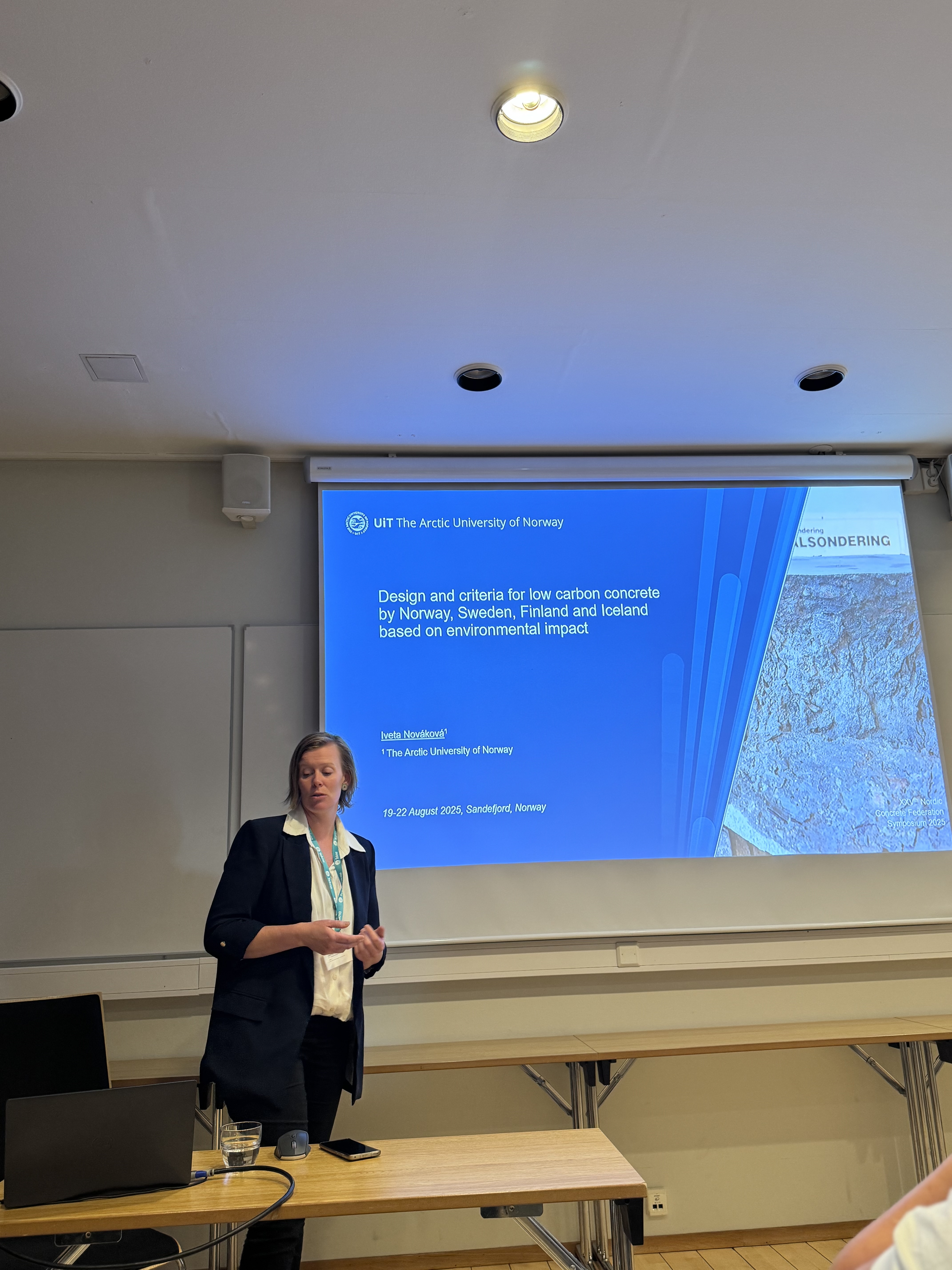 |
The third speaker, Jonas Carlsward from Heidelberg Materials Betong, presented on freeze–thaw testing of low-carbon concrete carried out in accordance with the Swedish standard.
The final speaker, Magdalena Rajczakowska from Luleå University of Technology, Sweden, focused on durability testing, highlighting freeze–thaw resistance, the potential for accelerated test methods, and performance of concrete under natural marine conditions.
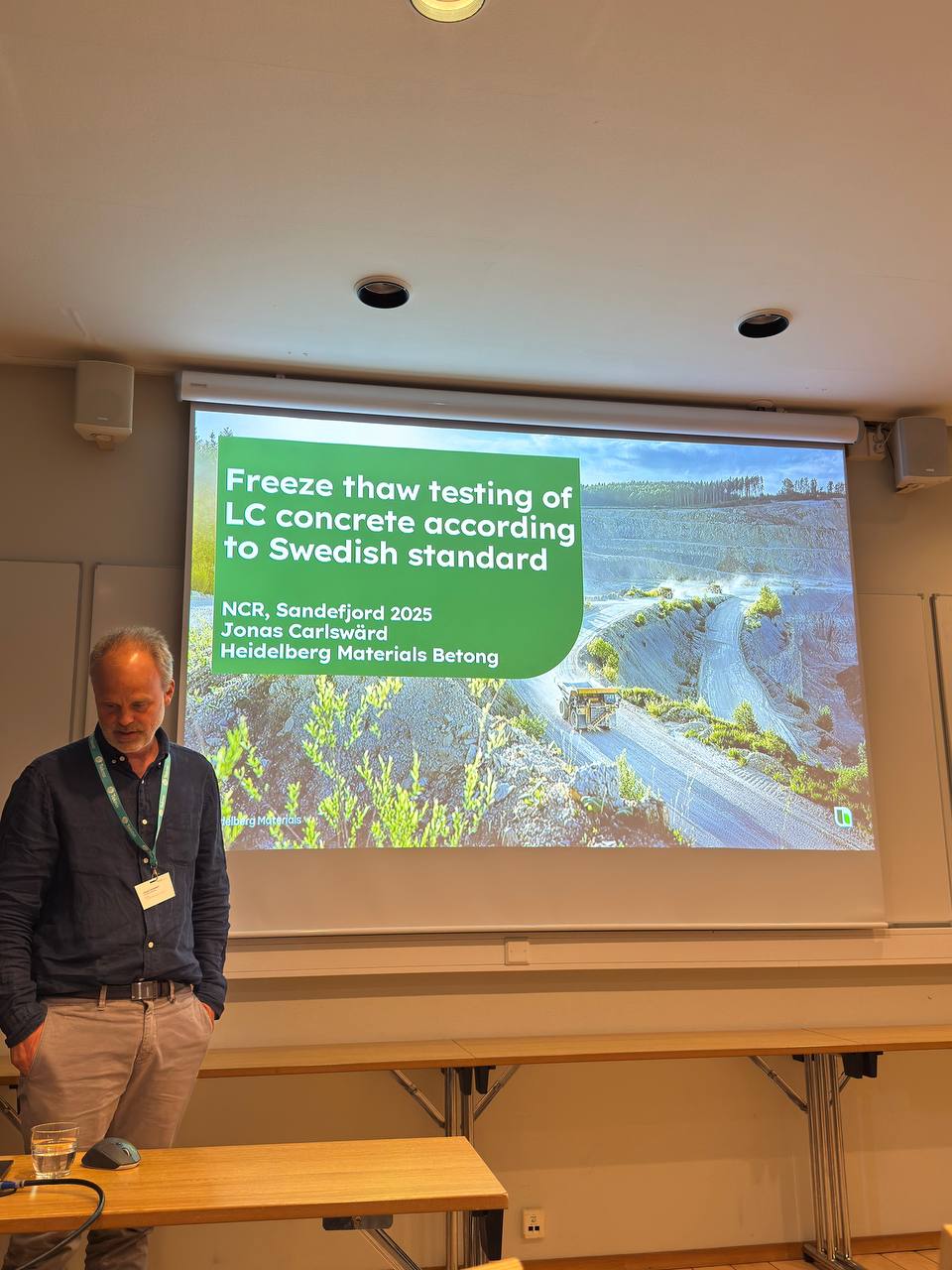 |
|
The Concrete Cafe concluded with an open discussion based on questionnaires prepared both research and industry perspectives, reflecting A2CorD’s strong partnership between academia and industry.
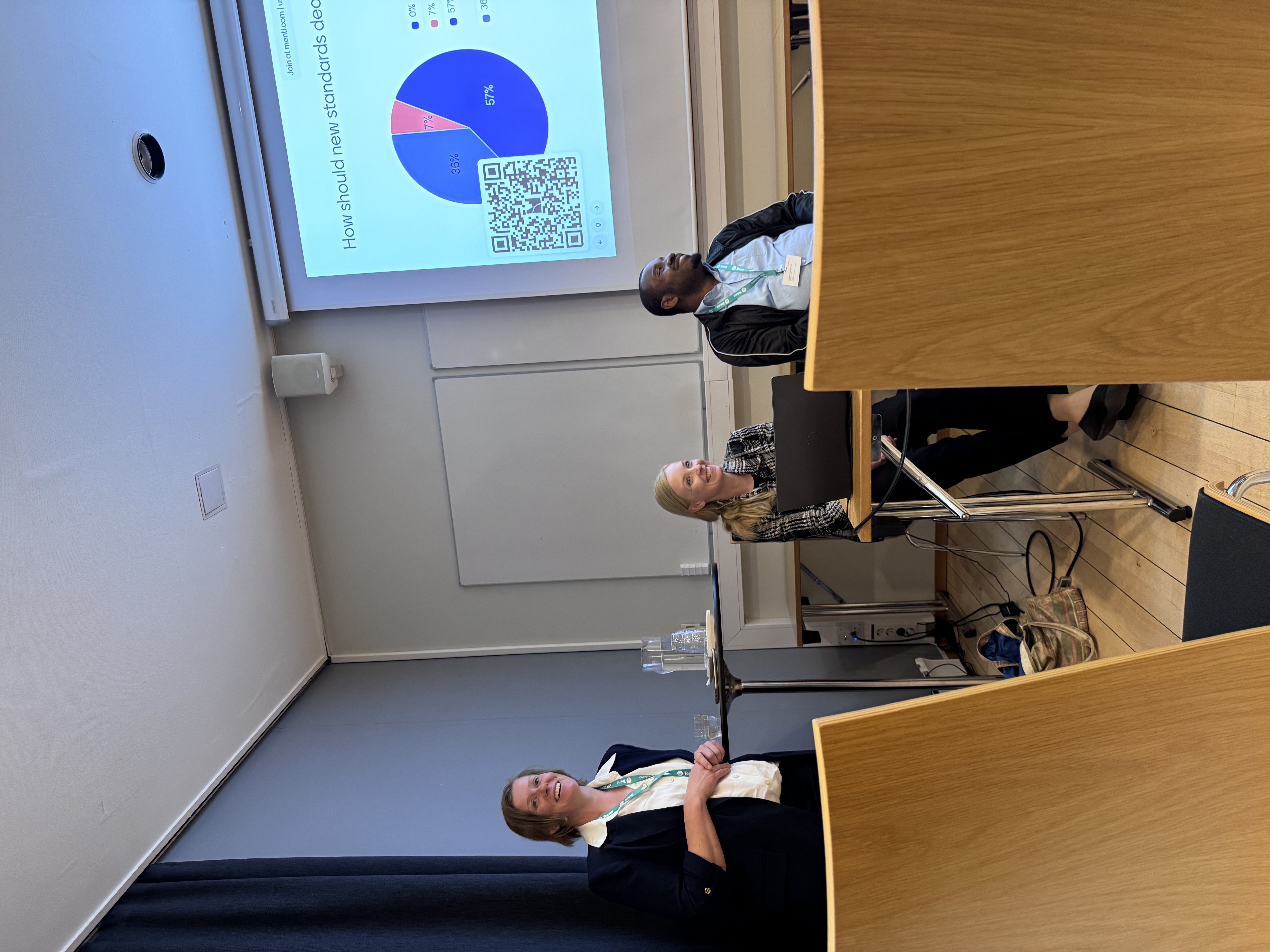 |
 |
 |
 |
The program on 21 August was rich with presentations and discussions. During the day, Iveta Nováková presented research based on a master’s thesis, focusing on modified curing methods for freeze–thaw durability testing of low-carbon concrete.
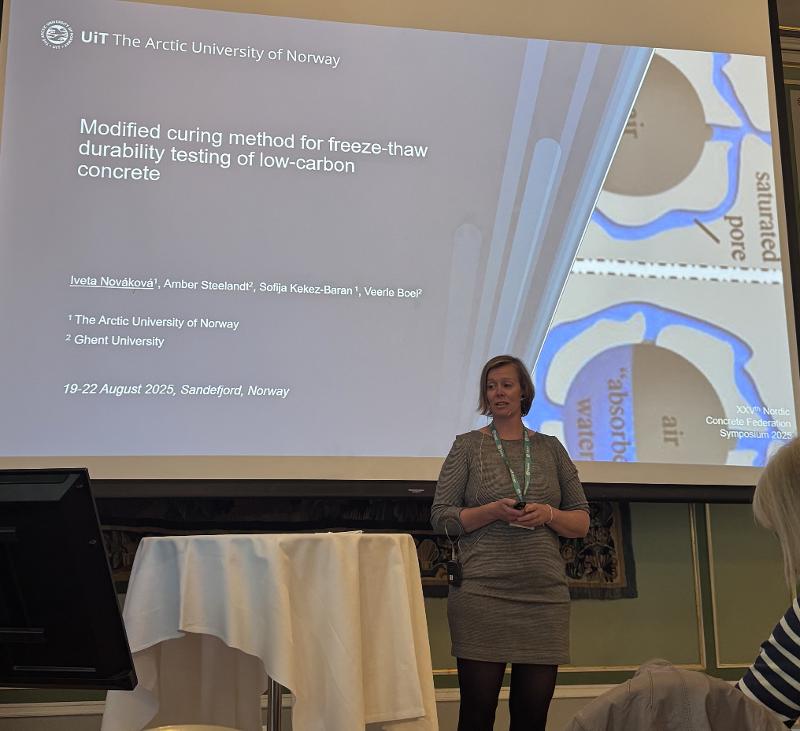 |
In the evening, the symposium continued with a festive banquet dinner, which also featured the presentation of the Best Paper of the Year award and the Nordic Concrete Federation Medal, celebrating outstanding contributions to the field. The program also included a photo shoot with the participating PhD students, capturing the strong presence of early-career researchers at the event.
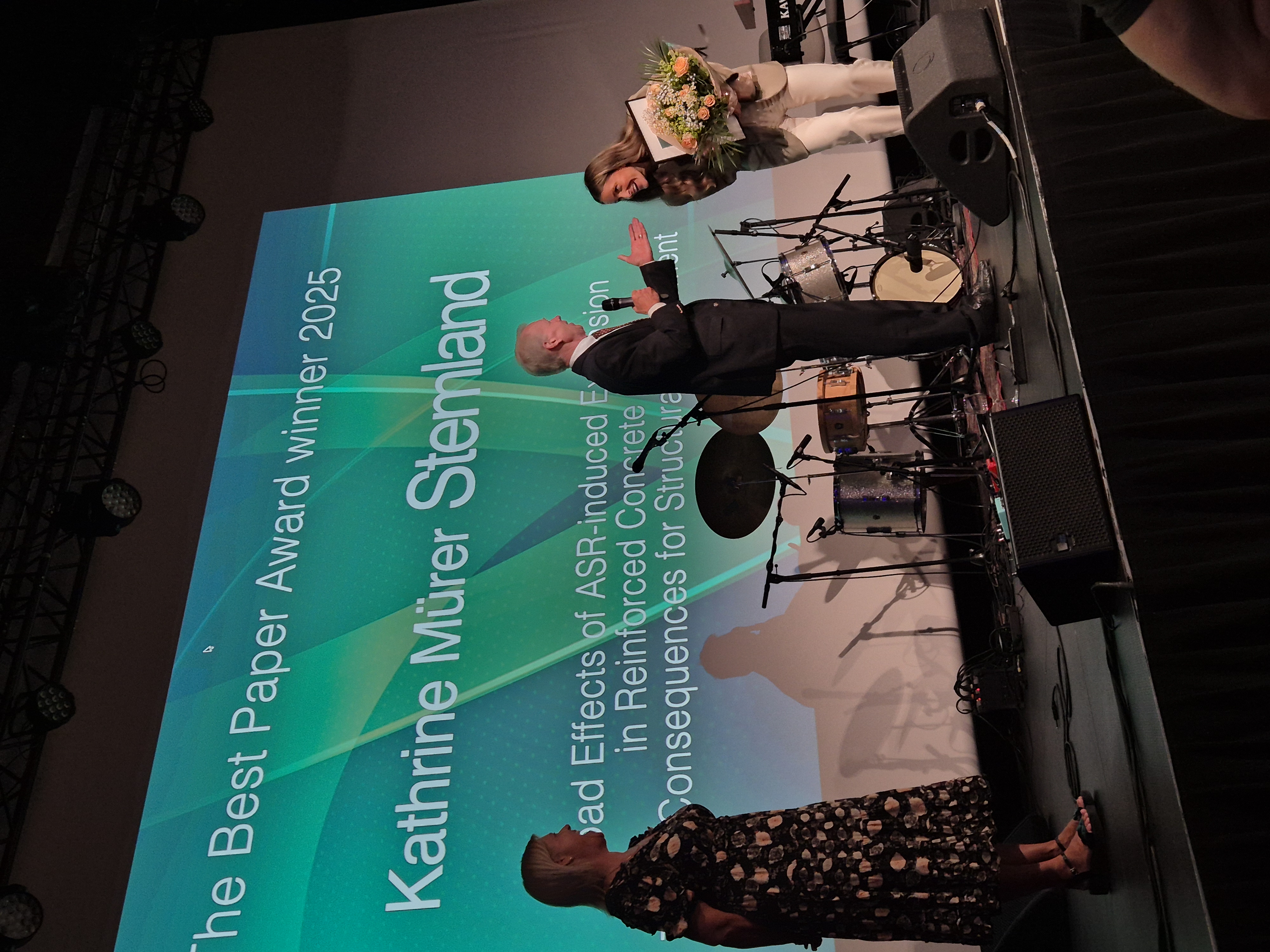 |
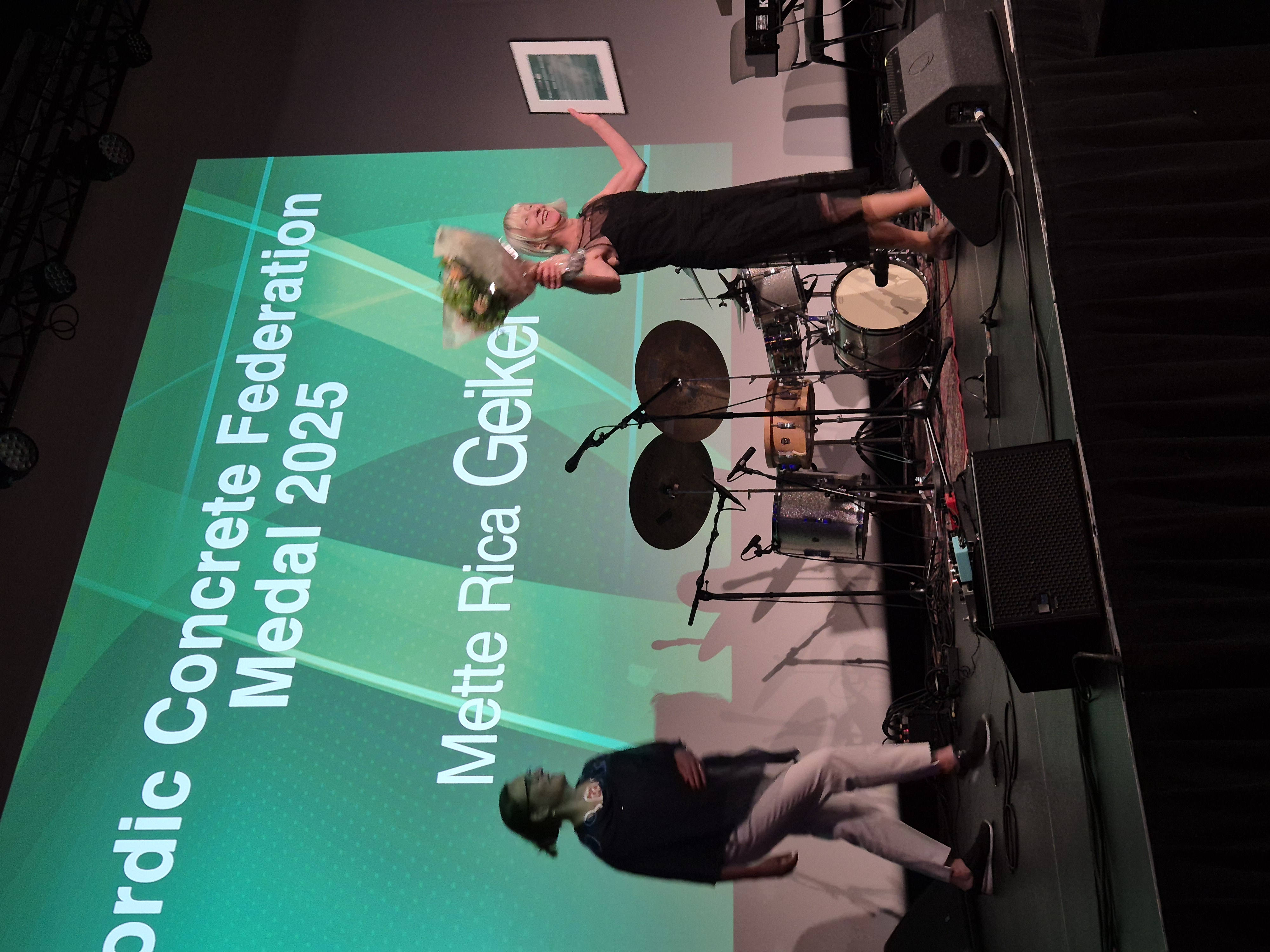 |
 |
On the final day, 22 August, the symposium continued with presentations and concluding remarks held until lunchtime. During this session, Iveta Nováková presented on the establishment of a long-term durability monitoring station at Narvik Harbour, highlighting its importance for future research and practice.
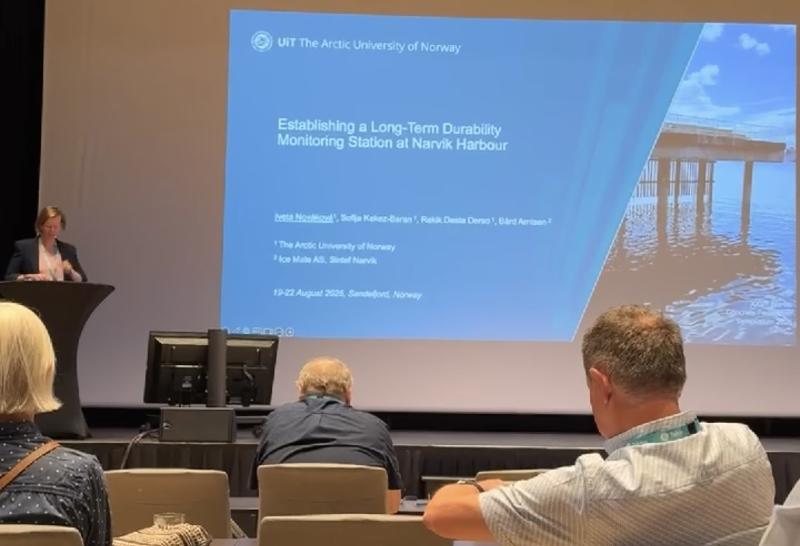
The symposium concluded with insightful discussions and strengthened collaborations, highlighting the shared commitment to durability and sustainability in concrete. As the event came to a close, it was announced that the next Nordic Concrete Symposium will be hosted in Finland in 2028.
